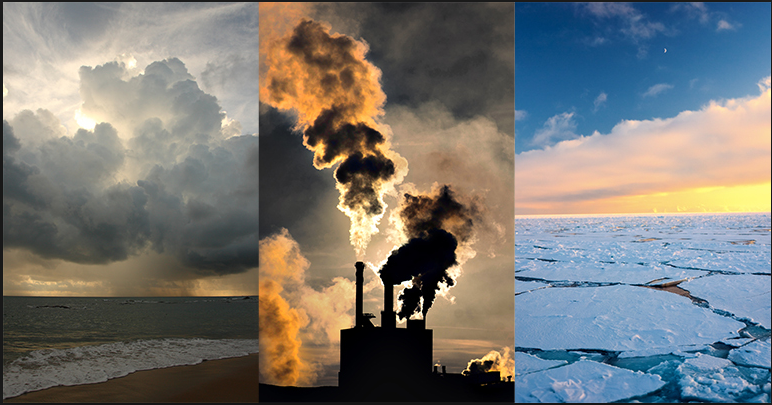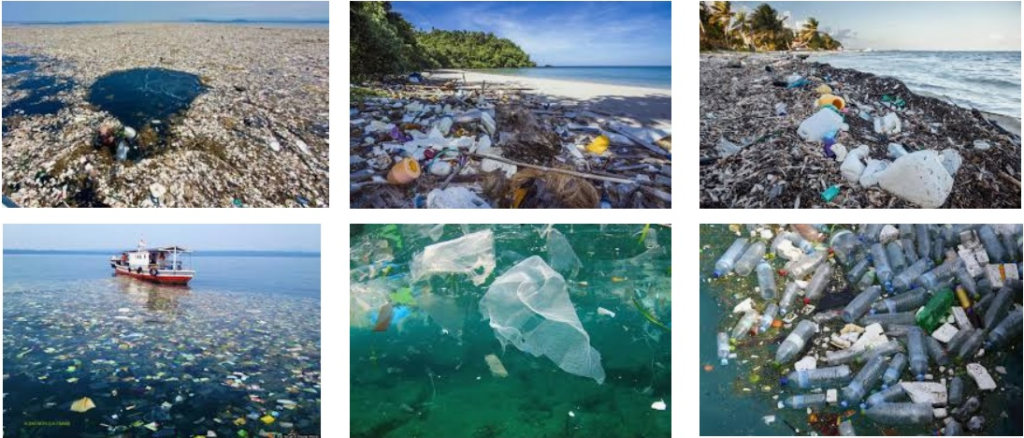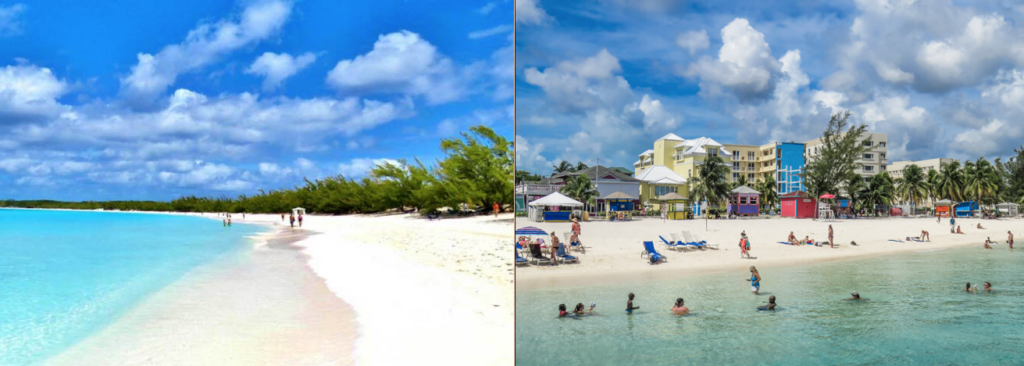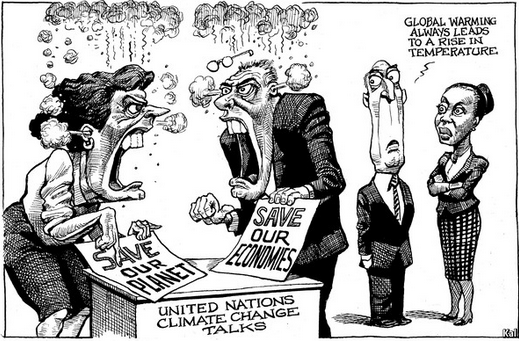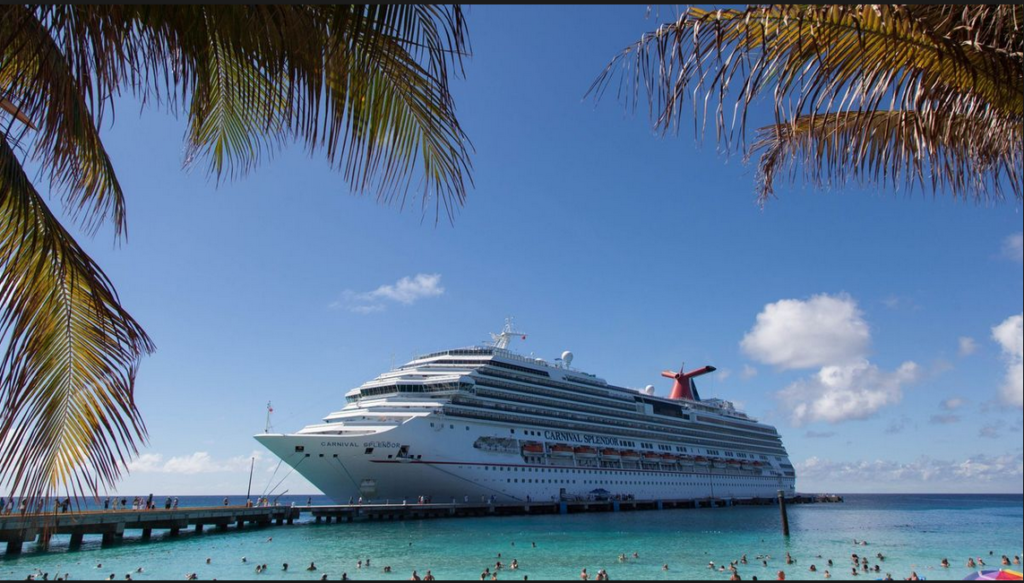Is to stop the dumping of waste in the Caribbean Sea.
I advocate a pragmatic and parochial strategy for combating climate change. The adage “clean up your own back yard…” pretty much sums it up.
Pursuant to this strategy, I have always championed conservation and anti-pollution measures. In doing so, I have eschewed the handwringing that characterizes concerns about global warming and climate change.
The cyclical nature of all weather phenomena informs my strategy. I have elaborated in commentaries like
- “Global Warming or Just Hot Air?” February 16, 2005;
- “Global Cooling? Yes!” October 21, 2008;
- “Climate-Gate: Emails Expose Scientific Doubts about Climate Change,” December 4, 2009;
- “Beating the Dead Horse Global Warming Has Become,” February 10, 2012; and
- “Pioneer Climatologist Calls Paris Climate Deal ‘Bullsh*t,” December 15, 2015.
But the following quote from “March to Save the Planet? Get Real!” September 23, 2014, synthesizes my take on and strategy for combating climate change:
I have written far too many commentaries on this topic to count. Unfortunately, they’ve done little more than lump me together with the ‘heretics’ trying to temper increasing alarms about climate change with calming facts about environmental protection and conservation.
Therefore, on behalf of all proud heretics in this respect, let me hasten to clarify: We acknowledge climate change as a fact but hardly an existential threat. We simply maintain that there are many “Global Priorities Bigger than Climate Change” – as the critically acclaimed Danish environmentalist, Professor Bjorn Lomborg, proffered in his now seminal TED talk in 2005.
That said, my pet peeve is the myriad ways humans are polluting every body of water on our planet. No doubt this stems from growing up in the Caribbean, where I spent so many days swimming in the sparkling turquoise waters of The Bahamas.
But it should not take hailing from the Caribbean for one to decry pollution like this:
The world’s largest collection of ocean garbage is growing.
The Great Pacific Garbage Patch, a collection of plastic, floating trash halfway between Hawaii and California, has grown to more than 600,000 square miles, a study found. That’s twice the size of Texas.
(USA Today, March 22, 2018)
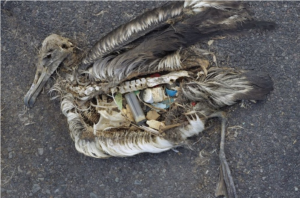 And, more existentially, pollution like this:
And, more existentially, pollution like this:
Scientists across the globe are increasingly finding wildlife that has been killed after ingesting or becoming entangled in plastic.
The estimated 19 billion pounds of plastic that ends up in the ocean every year is expected to double by 2025. These plastics will not only kill more animals; they’ll decimate coral reefs, and damage human health as microplastics enter the food chain.
(The New Republic, April 16 2018)
All the same, my pragmatic and parochial strategy moved me to criticize Caribbean countries for signing on to climate-change accords (from Kyoto to Paris). After all, they did so with high-polluting countries (like the United States, China, and India) that invariably dominated negotiations. This created the predatory dynamic of minnows swimming among sharks, making those high-polluting countries a greater existential threat than climate change.
More to the point, even I knew from Kyoto days that, despite accords, these worst polluters would continue to increase their “planet-warming gases.”
Global emissions of carbon dioxide are reaching the highest levels on record, scientists projected Wednesday, in the latest evidence of the chasm between international goals for combating climate change and what countries are doing.
(The Washington Post, December 5, 2018)
This is why I exhorted Caribbean countries to pool their political clout. Because that would enable them to draft and enforce strict environmental regulations to protect and preserve our eco-region and its most precious natural resource: the Caribbean Sea.
I envisioned them levying behavior-modification fines on local polluters across the region for dumping everything from sewage to garden-variety trash.
For major Caribbean cities, the amount of solid waste collected can be as low as 50% of the total amount generated.
Where does the rest of this garbage go?
(“The Fight for a Trash Free Caribbean Sea,” UN Environment re Kingston, Jamaica, February 17, 2017)
Mind you, this is happening despite The Protocol on the Control of Land Based Sources of Marine Pollution (LBS Protocol). Member states adopted it in 1999 to promote “cooperation for pollution prevention, reduction and control.”
But I also envisioned Caribbean countries levying far greater fines on foreign polluters for dumping all manner of waste from their private yachts, cruise ships, cargo ships, and oil tankers.
Apropos of this, here is what I wrote over twelve years ago in “Americans Can Afford Fashionable Concerns about Global Warming. We Cannot!” March 8, 2007:
____________________
The following is the clarion call Antigua and Barbuda’s Ambassador Deborah-Mae Lovell sounded during a seminar the OAS held to impart that ‘Climate change in the Caribbean demands urgent mitigation’:
The possibility that our climate may change is enough for us to take notice and to be pro-active. We stand to lose nearly everything, if the predictions of the scientists come true.
(OAS.org, January 18, 2007)
It is imperative that we cut pollution, conserve energy, and protect our environment. The sustainable development of the eco-tourism economies of the Caribbean depends on it.
Accordingly, we should reject any notion that the existential alarms of climate-change Cassandras are forcing us to do these things. Likewise, we should take umbrage at fearmongering claims that, if we don’t do as others say, God will break his covenant and flood our islands with the heavenly waters of the Caribbean Sea.
In fact, we should be taking pride in keeping our sea and beaches clean; instead of worrying about ‘the possibility that our climate may change.’ And, our leaders would do well to get the OAS and other international organizations to support our efforts to stop the dumping of waste off our shores; instead of parroting their alarms about climate change.
____________________
Unfortunately, Caribbean countries ignored my criticisms. To see how willfully so, just google “cruise ships fined for dumping waste.” Results will show the United States levying all kinds of fines for dumping off its shores. For example:
In December of 2016, Judge Seitz placed Carnival Corporation on probation and fined it a record $40,000,000 for widespread pollution and obstruction of justice. Carnival has a long history of getting caught committing environmental crimes dating back to 2002 when it pled guilty to numerous felonies for discharging oily waste into the sea. …
On March 8, 2019, the Office of Probation filed a motion to revoke probation on the grounds that the cruise corporation implemented a ‘brazen and secret’ scheme to send ‘SWAT teams’ to the cruise ships to ‘scrub’ them before the third-party auditors performed their compliance inspections.
(Walker & O’Neill Maritime Lawyers, April 11, 2019)
But you’d be hard-pressed to find a single result showing any Caribbean country levying similar fines. (If you know of any that has dared to do so, I would welcome being so informed.)
The point is that, if Carnival’s cruise ships are dumping waste in US waters as Judge Seitz found, just imagine what they are doing in ours … with impunity.
This is dismaying enough. But it becomes even more so in light of the fact that Caribbean countries are parties to The Convention on the Prevention of Marine Pollution by Dumping of Wastes and Other Matter 1972 (a.k.a. London Convention and London Protocol).
This protocol requires vessels to dump and treat waste on land. Therefore, you’d think Caribbean countries would recognize the categorical imperative (i.e., the joint and several benefits) of enforcing anti-dumping regulations. After all, the region is relatively small, and all economies depend heavily on tourists who visit primarily to revel in our “beautiful-by-nature” habitats.
 Yet they have failed to enforce those regulations in any meaningful way. And the reason is all too familiar to anyone who knows anything about the race-to-the-bottom, beggar-thy-neighbor politics of the Caribbean.
Yet they have failed to enforce those regulations in any meaningful way. And the reason is all too familiar to anyone who knows anything about the race-to-the-bottom, beggar-thy-neighbor politics of the Caribbean.
Simply put, Caribbean countries compete against each other to lure cruise ships and other commercial vessels to their ports of call. This invariably has them granting vessels de facto permits to dump all manner of waste off their shores, respectively.
Incidentally, I have always wondered why cruise liners do not think this dumping is jeopardizing their own bottom line. I know they’re trying to make their ships so all-inclusive, each might eventually feature a “Caribbean beach” on board. But surely even uncultured Americans would think twice about cruising the Caribbean Sea if news about it being contaminated with human waste goes viral.
Meanwhile, the looming spectre of waste washing ashore anywhere is obviously a threat to tourism everywhere in the Caribbean. Yet, evidently, regional countries couldn’t care less about this law of the sea.
No doubt this is why I vented utter exasperation when regional environmentalists seemed too busy combating Japanese whaling in international waters to notice cruise ships dumping waste off our shores:
Environmentalists are up in arms about people hunting whales. But these avengers would prove far more useful to Mother Nature if they could get cruise ships to hold their crap to dump back home, instead of leaving it behind like bobbing logs in our Caribbean Sea.
(“Fatuous Anti-Whaling Argument: Free Willie or We’ll Destroy Your Economy,” The iPINIONS Journal, June 23, 2006)
Clearly, I’ve been decrying the failure of Caribbean countries to act pursuant to their interdependent interests for years. I refer you also to such commentaries as “OAS Summit Dramatizes the Failure and Marginalization of CARICOM,” June 6, 2005, and “CARICOM and Its Groundhog-Day Meetings,” February 21, 2013, which includes this abiding testament:
I believe in cleaning up my own mess before complaining about that of others. Therefore, what I decry most in this context is that The Bahamas, the country of my birth, often seeks more ways to opt out of CARICOM agreements than ways to codify common cause among member states.
Again, I fully appreciate that climate change is causing hurricanes, fires, and rising sea levels to wreak unprecedented devastation. But the United States can’t even combat gun violence, which kills tens of thousands of Americans each year.
 Therefore, it’s foolhardy to think it will ever combat climate change, effectively – no matter the increasing toll of related deaths. And, it’s probably even more so to think the Chinese, Indians, and other major polluters ever will.
Therefore, it’s foolhardy to think it will ever combat climate change, effectively – no matter the increasing toll of related deaths. And, it’s probably even more so to think the Chinese, Indians, and other major polluters ever will.
Of course, it hardly helps the cause when no less a person than the president of the United States, Donald J. Trump, is a denier. He’s among an alarming number of Americans who still think climate change is a hoax.
This is why I reiterate my pragmatic and parochial plea for Caribbean countries to do what little they can to preserve and protect our habitats.
We do not have the power to stop any of the weather-related effects of climate change. But we do have the power to stop some of the human-related effects. And it’s in our enlightened regional interest to do so.
Related commentaries:
Americans can afford…
global warming…
Paris talks…
Pioneer climatologists…
fatuous anti-whaling…
CARICOM…
